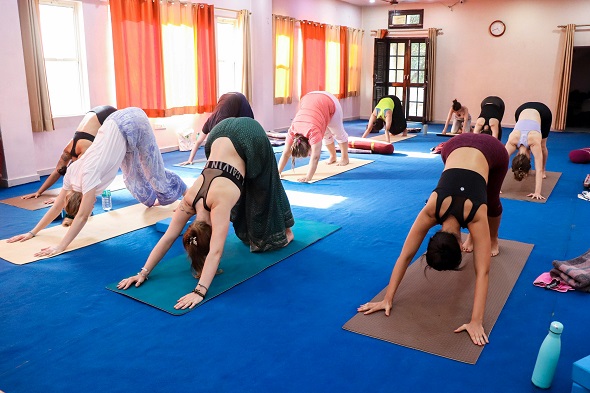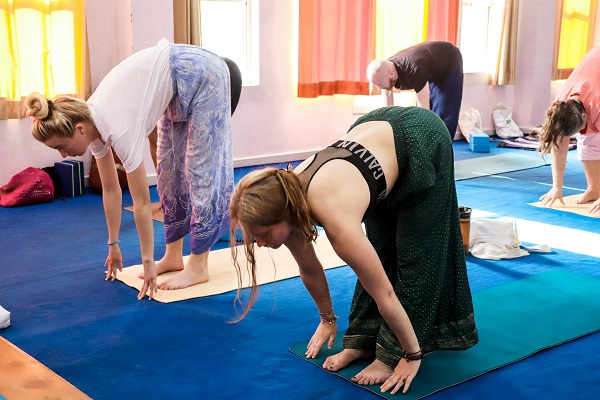Exercise: 15 Benefits of Regular Physical Activity
Frequent exercise is one of the main components of healthy health Life. While most people are aware that exercise can help you maintain a healthy weight, the benefits extend far beyond that. The positive effects of regular physical activity on the body and mind are numerous and profound. In this article, we will explore 15 key benefits of maintaining a regular exercise routine and how physical activity can dramatically improve your overall quality of life

Read more: Daily Exercise for Longevity
1. Improves Cardiovascular Health
One of the most well-known benefits of exercise is its ability to enhance cardiovascular health. Regular physical activity strengthens the heart and improves blood circulation, which can help reduce the risk of heart disease, stroke, and high blood pressure.
Vigorous aerobic activity, such as running, swimming, and cycling, is particularly beneficial for improving heart function, increasing the heart’s efficiency, and helping the blood vessels become more flexible. Studies have shown that engaging in moderate to vigorous physical activity can lower levels of “bad” LDL cholesterol, raise “good” HDL cholesterol, and improve blood pressure.
2. Aids in Weight Management
One effective strategy for controlling and preserving a healthy weight is exercise. It helps burn calories, which, when combined with a balanced diet, can lead to weight loss or prevent weight gain.Even while you are at rest,your body might burn extra energy since physical activity speeds up your metabolism.
Furthermore, exercise can help reduce body fat, particularly visceral fat (the fat around your organs), which is associated with numerous health issues, including diabetes and cardiovascular disease. Whether it’s through cardiovascular exercise or strength training, staying active is one of the most effective strategies for managing weight.
The Department of Health and Human Services recommends that adults engage in 150 minutes of moderate aerobic activity or 75 minutes of vigorous aerobic activity each week to help maintain a healthy weight and promote overall well-being. If weight loss is a goal, 300 minutes per week of moderate activity can yield even more significant results.
3. Boosts Mental Health Life
Mental health is significantly impacted by physical activity. Endorphins, the body’s natural “feel-good” chemicals, have been demonstrated to be released during exercise and can help lower stress, anxiety, and sadness. Regular exercise can help improve mood and promote a sense of well-being, often referred to as the “runner’s high.” Studies suggest that even just a small amount of physical activity, such as a brisk walk, can have immediate benefits for mental health.
Additionally, exercise can help those with chronic illnesses feel less irritated. mental health conditions, providing them with a natural way to enhance mood and reduce stress.
4. Enhances Muscle and Bone Strength
Regular exercise, particularly strength training, has a significant impact on muscle and bone health Life. Resistance exercises like weightlifting, bodyweight exercises (such as push-ups and squats), and resistance band training stimulate muscle growth and enhance muscle strength.
These exercises also help increase bone density, which is crucial in preventing osteoporosis, a condition that weakens bones and makes them more susceptible to fractures.
As we age, our muscles and bones naturally weaken, but strength training can counteract these effects and improve overall strength, balance, and flexibility. Additionally, strength training targets multiple muscle groups, helping ensure that all areas of the body are equally developed and toned.
5. Improves Flexibility and Mobility
Physical activity, including stretching and yoga, can improve flexibility and mobility.Frequent stretching lowers your chance of injury by keeping your joints more flexible and your muscles supple. Stretching exercises can also alleviate tension in tight muscles and improve posture, which in turn can reduce the risk of developing chronic pain, particularly in the back and neck.
A flexible body is less prone to strains and sprains, and it enhances your ability to move more freely throughout your Life. Being flexible becomes even more crucial as we become older in order to preserve our freedom and standard of living Life.

6. Increases Life span
Studies have shown that individuals who engage in regular physical activity tend to live longer and have a reduced risk of dying from chronic diseases. Regular exercise has been associated with a decrease in the risk of cancer, cardiovascular disease, and other age-related conditions.
For example, a study published in the American Journal of Preventive Medicine revealed that people who were physically active lived up to five years longer than those who led sedentary life styles. Even small amounts of physical activity—such as brisk walking for 30 minutes a day—can help extend life expectancy.
7. Boosts Immune System
Exercise plays a crucial role in supporting and boosting the immune system. Moderate exercise has been shown to enhance the immune response by promoting the circulation of immune cells throughout the body. Regular physical activity can help the body fight off infections and reduce the severity and duration of illnesses.
However, it’s important to note that excessive exercise, particularly intense intensity exercise or vigorous aerobic activity, can have the opposite effect and weaken the immune system. Balance is key to maximizing the immune-boosting benefits of exercise.
8. Improves Sleep Quality for Life
For those who struggle with sleep issues, regular exercise can be a game-changer. Physical activity has been shown to improve the quality of sleep by promoting deeper, more restful sleep cycles.
Regular exercise helps regulate the body’s internal clock, which can be particularly beneficial for individuals with insomnia or other sleep disorders. Additionally, it shortens the time it takes to fall asleep and may ease restless nights.
The Department of Health and Human Services advises that engaging in moderate-intensity exercise such as a brisk walk or cycling earlier in the day can help improve sleep quality Life, Even so, it is advised to avoid doing strenuous exercise right before bed.
9. Reduces Risk of Chronic Diseases
Regular physical activity plays a crucial role in reducing the risk of developing chronic diseases such as Type 2 diabetes, high blood pressure, and certain types of cancer. Exercise helps regulate blood sugar levels, improve insulin sensitivity, and reduce the risk of developing obesity, which is a major risk factor for these Life conditions.
In fact, studies have shown that regular exercise is as effective as medication in managing conditions such as high blood pressure and Type 2 diabetes. Staying active can also reduce the risk of certain cancers, such as colon and breast cancer, by improving hormone regulation and promoting healthy cell growth.
Strength training and aerobic exercise are both essential components in reducing the risk of health Life conditions. When combined, they provide the most well-rounded benefits for long-term health Life.
10. Improves Cognitive Function
Exercise isn’t only excellent for your body—it’s also crucial for cognitive health. Physical activity has been shown to enhance cognitive function, improve memory, and reduce the risk of age-related cognitive decline. Frequent exercise improves brain function and fosters the development of new neurons by increasing blood flow to the brain.
Actually, research suggests that physical activity can delay or prevent the onset of cognitive diseases such as Alzheimer’s and dementia. Exercise is particularly beneficial for older adults, helping them maintain sharpness and mental acuity as they age.
11. Promotes Better Digestion
Exercise has a positive impact on the digestive system by promoting regular bowel movements and improving gut health. Physical activity helps stimulate the muscles in the digestive tract, which can improve the movement of food through the intestines, reducing the risk of constipation.
In addition, regular exercise supports a healthy Life gut microbiome, the community of bacteria that live in your digestive system, which plays a role in overall health. A healthy digestive system is crucial for nutrient absorption and maintaining optimal energy levels.
12. Enhances Mental Focus and Productivity
Physical activity has been shown to improve concentration, focus, and overall productivity. Neurotransmitters such as serotonin and dopamine are released in response to exercise, which enhance mood and cognitive function.Better decision-making, more creativity, and enhanced problem-solving abilities can result from this.
Whether you’re working on a project at work or studying for an exam, taking breaks for physical activity can improve mental clarity and boost overall performance. Additionally, regular exercise can enhance your ability to multitask and manage stress, making it easier to handle the demands of daily life.
13. Promotes Healthy Skin
Exercise promotes healthy skin by increasing blood circulation and the delivery of oxygen and nutrients to the skin cells. Regular physical activity helps clear toxins from the body through sweat, which can promote a clearer complexion and a healthier-looking appearance.
Furthermore, exercise helps reduce the risk of certain skin conditions, such as acne, by balancing hormone levels and reducing stress. However, it’s important to practice good skincare after exercise, as sweat can clog pores if left on the skin for too long.
14. Improves Self-Esteem and Confidence
Regular physical activity can have a powerful impact on your self-esteem and confidence. As you become stronger, fitter, and more capable, you may begin to feel a sense of accomplishment and pride in your body. This can lead to improved body image, increased self-worth, and a more positive outlook on life.
The physical changes that come with exercise, such as weight loss, improved muscle tone, and increased strength, can also boost your confidence and motivation to continue pursuing your fitness goals.
15. Strengthens Social Connections
Exercise can also provide an opportunity for social interaction and community building. Whether you’re joining a gym, participating in group fitness classes, or simply walking or running with a friend, physical activity can strengthen social bonds and help build a supportive network of people who share similar health and fitness goals.
Exercising in a group setting can provide motivation, encouragement, and accountability, all of which can make sticking to an exercise routine easier and more enjoyable Life.

Conclusion
Regular physical activity has several, wide-ranging advantages. From improving cardiovascular health Life and muscle strength to boosting mental well-being and cognitive function, exercise has a profound impact on nearly every aspect of our lives. It enhances physical health, promotes mental clarity, and can even foster meaningful social connections.
Whether your goal is to manage your weight, reduce stress, or simply feel better in your own body, incorporating regular physical activity into your routine is one of the best decisions you can make for your long-term health and happiness Life. 150 minutes of moderate or 300 minutes of physical activity per week is an achievable and effective target to reap the numerous health benefits that exercise provides. Start with small amounts of activity, like a brisk walk, and work your way up to a full exercise routine—your body and mind will thank you for it.
FAQ;
1. What are the key benefits of regular exercise?
Regular exercise improves cardiovascular health, aids in weight management, boosts mental health, enhances muscle and bone strength, and improves flexibility and mobility. It also reduces the risk of chronic diseases, improves cognitive function, promotes better digestion, enhances sleep quality, and strengthens social connections.
2. How does exercise impact mental health?
Exercise boosts mental health by releasing endorphins, which improve mood and reduce stress, anxiety, and depression. Regular physical activity can enhance overall mental well-being, providing a natural way to reduce symptoms of mental health conditions.
3. What are the benefits of strength training?
Strength training enhances muscle strength, promotes muscle growth, and increases bone density. It helps prevent osteoporosis and improves overall strength and balance, reducing the risk of falls and fractures.
4. How does exercise improve flexibility?
Exercise that includes stretching and yoga can improve flexibility and mobility. Regular stretching helps keep muscles limber, relieves tension, and improves posture, which reduces the risk of injury.
5. Can exercise increase lifespan?
Yes, studies have shown that regular physical activity can increase life expectancy by reducing the risk of chronic diseases such as heart disease, diabetes, and certain types of cancer. Even small amounts of exercise can contribute to a longer life.
6. Does exercise improve sleep?
Yes, regular physical activity promotes deeper, more restful sleep by regulating the body’s internal clock. It helps reduce sleep disorders such as insomnia and decreases the time it takes to fall asleep.
7. Can exercise improve brain function?
Exercise increases blood flow to the brain, which enhances cognitive function, memory, and mental clarity. Regular physical activity can also help delay or prevent age-related cognitive decline and reduce the risk of Alzheimer’s and dementia.
8. How does exercise enhance productivity?
Exercise boosts mental focus, concentration, and decision-making by releasing neurotransmitters like dopamine and serotonin. Physical activity can improve creativity, problem-solving skills, and overall productivity, making it easier to handle daily tasks.
9. Can exercise improve skin health?
Yes, regular exercise improves blood circulation, delivering oxygen and nutrients to the skin, helping to clear toxins and promote a healthier complexion. It can also help balance hormones and reduce stress, which is beneficial for skin health.
10. How can exercise improve self-esteem?
Regular physical activity helps improve body image, boost confidence, and promote a sense of accomplishment. As you become stronger, fitter, and more capable, you gain self-worth, which leads to higher self-esteem and greater motivation to continue exercising.
